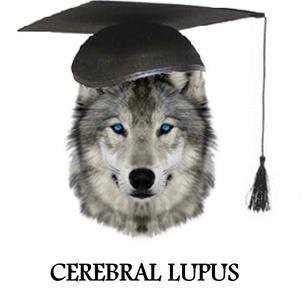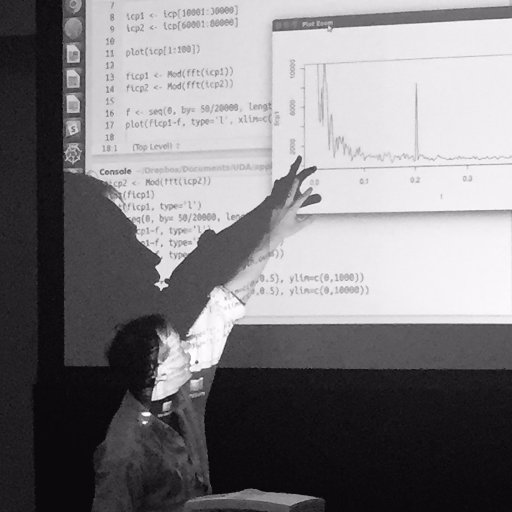
Joseph Donnelly
@joseph_aotearoa
Followers
108
Following
688
Media
14
Statuses
121
Antipodal brain monitoring
New Zealand
Joined September 2019
I agree incorporating directionality of pressure changes would be interesting - certainly would be challenge to integrate clinically!
1
0
2
Having a CPPopt with impaired (positive in the case of PRx) values of reactivity indices indicates that there is likely no flat zone on the hypothetical lassen curve.
1
0
4
The curve fitting process linking perfusion pressure with dynamic cerebrovascular reactivity is far from perfect, but from looking at the whole curve (rather than just the nadir, or cut point) one can get an idea as to the theoretical shape of the static autoregulation curve
1
0
1
Whether these physiologically informed paradigms improve patient outcomes compared to the simpler option of not monitoring cerebrovascular physiology at all is yet to be proven.
1
0
1
Great point regarding nuances of brain pressure flow relationships. I think there is a tension/compromise between having model/paradigm that's simple enough to be clinically useable, but complex enough to accurately describe the physiology.
In the current issue of Anesth Analg issue (@IARS_Journals): Pro-Con Debate: The Clinical (Ir)relevance of the Lower Limit of Cerebral Autoregulation for Anesthesiologists https://t.co/ovgsQJEBmt With accompanying editorial:
1
1
8
Can we let a computer tell us how to manage blood pressure? Great effort from the Dutch group showing that automated personalised pressure targets are safe and feasible after brain trauma
The Autoregulation-Guided Cerebral Perfusion Pressure after Traumatic Brain Injury (COGITATE) results have been published!! @AriErcole @DrSmielewski @Menon_Cambridge @TasJeanette @iccvanderhorst @joseph_aotearoa @pja_hutch @erta_beqiri @GMeyfroidt Link: https://t.co/HQZBFg80pq
0
0
3
Practical take home message? Physiological insults in critical illness are context dependent - "Intracranial pressure is more than a number". Thanks @GMeyfroidt @DrSmielewski @faguiza
0
1
5
Importantly, having good cerebrovascular function or adequate cerebral perfusion pressure seem to be protective.
1
3
4
A confirmatory study showing how both duration and intensity of episodes of elevated intracranial pressure have important effects on patient outcome. Blue areas show characteristics associated with good outcome, red areas show characteristics associated with bad outcome.
1
0
1
Intracranial pressure after traumatic brain injury - Does it matter how high? Does it matter how long? Yes. https://t.co/mIZ1Ff3dhk
1
1
7
“I was going to treat all of my patients the same, because I was ‘colour-blind’. . . It wasn’t until I started specialising in public health that I realised how ill-informed and ignorant I’d been.” — Dr @VanessaSelak
https://t.co/6CGlkupX2R
e-tangata.co.nz
“At medical school . . . I was presented with a narrative that implied that Māori were at fault for their own ill health.” — Dr Vanessa Selak.
2
55
123
Perhaps some of the large publishing groups could invest some of their substantial profits into fellowships for these early-career academics? @SpringerNature @ElsevierConnect @WileyGlobal @SAGE_Publishing
#Coronavirus has brought the academic job market close to collapse, and early-career academics are taking the hit. https://t.co/l4wuIWyTDs
0
1
3
Nice work from @AriErcole @DrSmielewski and Co. Brain tissue oxygenation not intimately linked with changes MAP and ICP.What influences brain oxygenation then? PaCO2? PaO2?? brain VO2??? If we use the signal to help treat patients, we need to understand the physiology #TBI
Intracranial pressure and blood pressure signals respond to each other's fluctuations after #TBI But not so for brain tissue oxygen (PbtO2) recordings PbtO2 different statistical signal properties so ORx is not the same as PRx https://t.co/98je08UY3w
0
0
3
With Microsoft planning to build a data centre in Aotearoa, is it time that we FINALLY move to e-medical records across the country? NZ is already uniquely placed to harness data with our IDI system but how can we STILL be using paper notes in hospital?! @minhealthnz
OUR NEW PAPER. Factors associated with COVID-19-related hospital death in the linked electronic health records of 17 MILLION adult NHS patients. Largest study of its kind ever, anywhere. The power of UK / NHS data, realised. https://t.co/XeQj4IG8I8
https://t.co/SpglPKpJSk
1
1
2
A colleague asked whether there are 'low-hanging fruits' to improve the response to the pandemic. I know two for all those who publish original data: – Publish data in a csv file. (Not in pdfs, press conferences, or Twitter images.) – Provide a clear description of that data.
32
435
1K
Nice one @AriErcole. I wonder what cerebrovascular autoregulation is "telling us"? It's not just telling us about the stability of Perfusion with BP fluctuations. Could it have an epiphenomenal role - a healthy system is one with reactive vessels, independent of flow/metab/o2
Low PbO2, high ICP and impaired cerebrovascular autoregulation may occur together, but not necessarily so These measures reflect different aspects of physiology in patients treated for #TBI but all relate to outcome https://t.co/lx2O0GvCFb
1
0
1
Hopefully this information becomes available soon @minhealthnz? Knowledge is power, but only if the knowledge arrives in time...
#COVID19nz cases by DHB. What we really need is data on ethnicity & testing to get a fuller picture of COVID distribution and whether there is equitable access to testing for all New Zealanders @minhealthnz @rawirimj @Pacific_Peoples @ColinTukuitonga @dr_matire @AshBloomfield
0
0
1
Finally, with the country looking towards a safe strategy to exit Level 4 restrictions, DHBs with the low numbers are good candidates to look at community testing and relax restrictions. However, care must be taken protect the more vulnerable older Kiwis. #eradicatecovid19 (5/5)
0
0
1









